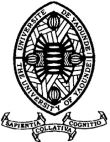Sexual Experience of Women Treated for Breast Cancer in Abidjan
Vécu de la Sexualité chez des Femmes Suivies pour un Cancer du Sein à Abidjan
DOI:
https://doi.org/10.5281/hra.v2i9.6020Keywords:
breast cancer, sexuality, treatmentAbstract
RESUME
Introduction. Les traitements du cancer du sein sont susceptibles d’altérer la qualité de vie et la sexualité des patientes à court ou à long terme. L’impact de ces traitements sur la sexualité est encore peu étudié auprès des patientes ivoiriennes. L´objectif de notre étude était d´évaluer la sexualité des femmes suivies pour un cancer du sein à Abidjan. Méthodologie. Il s’agissait d’une étude transversale descriptive, menée sur une période de 12 mois allant du 1er juillet 2021 au 30 juin 2022 portant sur les patientes suivies pour cancer mammaire et étant en activité sexuelle au CHU de Treichville/Abidjan. Résultats. Nous avons enregistré 100 patientes avec un âge moyen de 41,1 ans. Nos patientes étaient en grande partie étaient ménopausées (62%). la Fréquence des rapports, le désir sexuel (RSS3 et RSS 4) et la capacité d´atteindre l´orgasme (RSS 12) avait diminué respectivement chez 54,35% et 41% des patientes. La sensation d’être moins attirante était ressenti par 50% de notre population et 25% souffraient d´une sécheresse vaginale. La moyenne de rapports sexuels avant le diagnostic du cancer du sein était de 5,4 par mois ; et estimée à 3,1 par mois après le diagnostic de cancer du sein. Les troubles sexuels n´étaient pas significativement corrélés ni à la chirurgie, ni à la chimiothérapie ni à la thérapie ciblée, tandis que l´hormonothérapie était significativement associée à l´altération du fonctionnement sexuel (p=0,02) et à une moindre fréquence sexuelle (p=0,03). la perception de l´apparence était significativement associé à la peur sexuelle (p=0,01). Conclusion. Les traitements du cancer du sein affectent l'image corporelle, l'image de soi et des dysfonctionnements sexuels chez les patientes. De ce fait, une formation adéquate et accentuée sur la prise en charge des femmes ayant un cancer ainsi que leurs problèmes sexuels permettra d’améliorer l’accompagnement de ces femmes.
ABSTRACT
Introduction. Breast cancer treatment is likely to alter patients' quality of life and sexuality in the short or long term. The impact of these treatments on sexuality has not yet been studied in Ivorian patients. The aim of our study was to assess the sexuality of women undergoing breast cancer treatment in Abidjan. Methodology. This was a descriptive cross-sectional study, conducted over a 12-month period from 1 July 2021 to 30 June 2022, of patients undergoing treatment for breast cancer who were sexually active at the Treichville/Abidjan University Hospital. Results. We registered 100 patients with an average age of 41.1 years. Most of our patients were menopausal (62%). Frequency of intercourse, sexual desire (RSS3 and RSS 4) and ability to reach orgasm (RSS 12) had decreased in 54.35% and 41% of patients respectively. The feeling of being less attractive was felt by 50% of our population and 25% suffered from vaginal dryness. The average number of sexual encounters before the diagnosis of breast cancer was 5.4 per month, and was estimated at 3.1 per month after the diagnosis of breast cancer. Sexual dysfunction was not significantly correlated with surgery, chemotherapy or targeted therapy, whereas hormone therapy was significantly associated with impaired sexual functioning (p=0.02) and lower sexual frequency (p=0.03). Perceived appearance was significantly associated with sexual fear (p=0.01). Conclusion. Breast cancer treatment affects body image, self-image and sexual dysfunction in patients. Adequate training in the management of women with cancer and their sexual problems will help to improve support for these women.
References
Yombi 1. Ngo Pambe CJ, Mayemi E, Atenguena E, Ananga Noa S, Essame O, Mendimi Nkodo JM. Profil d’Expression de l’Oncoprotéine Her2 dans les Carcinomes Mammaires au Cameroun. Health Res Afr 2024 ; 2(7) : 1-5.
2. Ahmed SB, Aloulou S, Bibi M, Landolsi A, Nouira M, Fatma LB et al. Pronostic du cancer du sein chez les femmes tunisiennes ? : analyse d´une série hospitalière de 729 patientes. Sante Publique (Bucur). 2002; 14(3): 231-41.
3. Smida S, Bouchahda R, Guezguez A, Regaya M, Frigui M, Kaabia O et al. Évaluation de la sexualité chez des femmes atteintes d’un cancer du sein après traitement: à propos de 100 cas. Pan African Medical Journal 2021; 40(38) : 2-12.
4. Berglund G, Nystedt M, Bolund C, Sjödén PO, Rutquist LE. Effect of endocrine treatment on sexuality in premenopausal breast cancer patients: a prospective randomized study. J Clin Oncol 2001;19(11): 2788-96.
5. Mendelson BK, Mendelson MJ, White DR. Body-Esteem Scale for Adolescents and Adults. J Pers Assess 2001;76(1): 90-106.
6. Kwait RM, Pesek S, Onstad M, Edmonson D, Clark MA, Raker C et al. Influential forces in breast cancer surgical decision making and the impact on body image and sexual function. Ann Surg Oncol 2016;23(10): 3403-11.
7. Cortés-Flores AO, Vargas-Meza A, MorganVillela G, Jiménez-Tornero J, del Valle CJZ-F, Solano-Genesta M et al. Sexuality among women treated for breast cancer: a survey of three surgical procedures. Aesthetic Plast Surg 2017;41(6): 1275-9.
8. Malinovszky KM, Gould A, Foster E, Cameron D, Humphreys A, Crown J et al. Quality of life and sexual function after high-dose or conventional chemotherapy for high-risk breast cancer. Br J Cancer 2006; 95(12) : 1626-31.
9. Ganz PA, Desmond KA, Belin TR, Meyerowitz BE, Rowland JH. Predictors of sexual health in women after a breast cancer diagnosis. J Clin Oncol 1999; 17(8): 2371-80.
10. Fourati A, Louchez MM, Fournier J, Gamoudi A, Rahal K, El May M-V et al. Screening for common mutations in BRCA1 and BRCA2 genes: interest in genetic testing of Tunisian families with breast and/or ovarian cancer. Bull Cancer (Paris) 2014;101(11): 36-40.
11. This P, Lachowsky M. Après un cancer gynécologique, comment bien vivre sa sexualité?. Oncologie 2008;10(4): 250-3.
12. Ellouz F, Marrakchi N, Raies H, Masmoudi S, Mezlini A, M´rad MF. Dysfonction sexuelle chez 100 femmes tunisiennes atteintes d´un cancer du sein. Sexologies 2019;28(1): 43-8.
13. Brédart A, Dolbeault S, Savignoni A, Besancenet C, This P, Giami A et al. Prevalence and associated factors of sexual problems after early-stage breast cancer treatment: results of a French exploratory survey. Psychooncology 2011;20(8): 841-50.
14. Jeannin N, Pelletti CL D. La profession infirmière face à l´annonce en cancérologie ? : place et enjeux de la dimension psychologique. Prat Organ Soins 2012; 43(3): 177-85.
15. Leila M, Nada C, Kais C, Jawaher M. Sexuality after breast cancer: cultural specificities of Tunisian population. Pan Afr Med J. 2016;25: 17-27.
16. Zaied S, Ben Fatma L, Laadhari A, Boudegga MZ, Hochlef M, Chabchoub I et al. Study of sexuality among Tunisian women in remission from non-metastatic breast cancer, about 100 women. Bull Cancer (Paris) 2013;100(7- 8): 689-96.
17. Beck AM, Robinson JW, Carlson LE. Sexual intimacy in heterosexual couples after prostate cancer treatment: what we know and what we still need to learn. Urol Oncol 2009; 27(2): 137-43.
18. Dolbeau S, Flahault C, Brédart A. "Approche psycho-oncologique des difficultés intimes et sexuelles des patientes atteintes de cancer féminin et de leur conjoint." La lettre du Cancérologue 2009; 28: 418-22.
Downloads
Published
How to Cite
Issue
Section
License
Copyright (c) 2024 Touré YL, Odo BA, Madiou MKA, Sougué OPM, Mebiala NMP, Touré PGLK, Akinloyé SM, Kouassi KKY, Touré M, Ouattara B

This work is licensed under a Creative Commons Attribution-NoDerivatives 4.0 International License.
Authors who publish with this journal agree to the following terms:
- Authors retain copyright and grant the journal right of first publication with the work simultaneously licensed under a Creative Commons Attribution License CC BY-NC-ND 4.0 that allows others to share the work with an acknowledgement of the work's authorship and initial publication in this journal.
- Authors are able to enter into separate, additional contractual arrangements for the non-exclusive distribution of the journal's published version of the work (e.g., post it to an institutional repository or publish it in a book), with an acknowledgement of its initial publication in this journal.
- Authors are permitted and encouraged to post their work online (e.g., in institutional repositories or on their website) prior to and during the submission process, as it can lead to productive exchanges, as well as earlier and greater citation of published work










